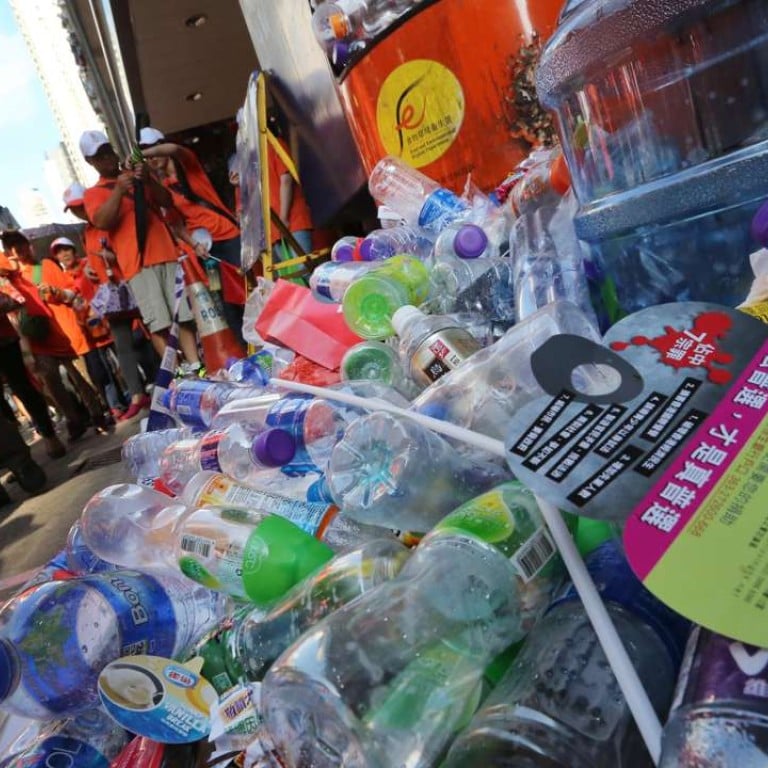
Stop talking trash and get tough on plastic waste, Hong Kong green groups urge
Legislation and charging schemes are essential to tackle growing problem of rubbish, environmentalists say
Green groups are pushing the government to take more concrete measures to reduce the city’s plastic waste problem, which they say has reached epic proportions.
This week, France became the first country in the world to impose a ban on plastic plates, utensils and cups that will take effect in 2020. In Hong Kong, however, the use of disposable plastic products remains rampant and environmental rights advocates say the government needs to implement legislation to reduce the amount of plastic waste.
“If they are serious about reducing the waste we produce, especially as our system for collection and recycling is poor, they need to take a hard line on this,” Tracey Read, founder and CEO of environmental group Plastic Free Seas, said.
“The government likes to tackle the easy things, like education. But enforcement and legislative changes are what the government should be doing.”
In 2014, about 63 per cent of the 5.62 million tonnes of waste generated was dumped in landfills, according to the latest government figures.

Hongkongers produced about 1.35kg of waste per day, an amount that has increased by 4 per cent since 2010.
Plastic waste can also make its way into the marine environment, where it is absorbed by marine animals and causes damage to the ecosystem as well as humans who consume them, Kate Lin, senior campaigner for Greenpeace East Asia, said.
Plastic comprised more than two-thirds of marine litter in the city, a 2015 survey by WWF-Hong Kong and other groups found.

The city already has such schemes in place for plastic bags, certain electrical appliances and also – from 2018 onwards – glass beverage containers.
Lau said the government should also push forward with a scheme to charge operators for the amount of solid waste they produced.
“Waste charging is [used] in many countries. The government should really act as soon as possible,” Lau said. “Without waste charging there would be no incentive for any operators to reduce the amount of waste they are producing.”
According to Read, numerous smaller recycling companies don’t receive the quantity of plastics needed to effectively process and bale some of the lower value plastics. If there were larger and fewer recycling plants processing plastics, then more could be processed and recycled together and less would end up in landfills, she said.
“It seems for most plastic processing facilities, they pick and choose what is worth processing and much [of it] ends up in landfills,” Read said.
“We have to improve the system [but] we also have to reduce the amount of plastic we’re using. Until we start doing that, we’re only adding every year to the waste problems that we have.”
An Environmental Protection Department spokesman said studies would be conducted to see if it was “necessary or appropriate” to introduce producer responsibility schemes on other products, including plastic containers. The department had also been preparing for the implementation of a waste charging programme, as well as upgrading recycling operations through a HK$1 billion recycling fund,
“We have been actively undertaking the preparatory work for the implementation of quantity-based municipal solid waste charging. It remains our target to introduce the enabling legislation within the 2016/2017 legislation session,” he said.
“The government also provides support to the recycling industry through the development of EcoPark in Tuen Mun to provide long-term land at an affordable cost to recyclers.”

